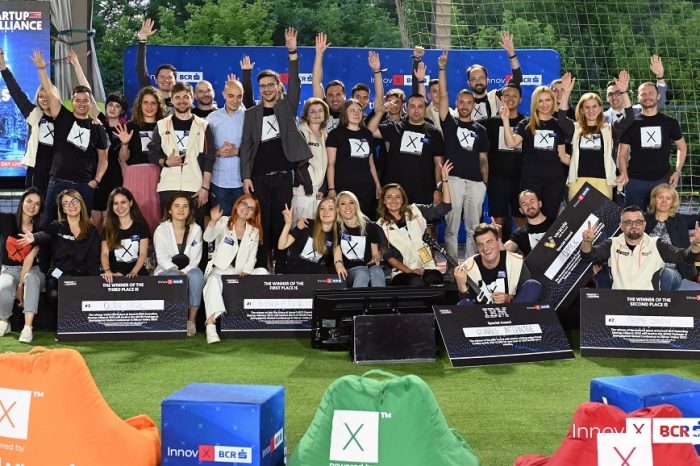Accenture identifies emerging group of industry leaders adopting ‘total enterprise reinvention’ as a strategy to reach new performance frontier

‘Reinventors’ invest in new technologies, find new ways of working and transform their businesses to deliver both financial and non-financial value
New research from Accenture finds that to grow and lead in today’s volatile environment, a small group of companies are adopting a deliberate, continuous strategy of Total Enterprise Reinvention for every part of their business with new technologies and new ways of working.

Total Enterprise Reinvention is powered by advancements in technologies such as AI and cloud computing. Today just 8% of companies surveyed are ‘Reinventors,’ setting a new performance frontier for themselves and, in most cases, their industries. Their transformation is centered around a strong digital core and new ways of working that help optimize operations and drive growth.
“Post-pandemic, these leaders are systematically changing the game and their industries,” said Julie Sweet, chair and CEO of Accenture. “Over time, they are transforming every part of their company to achieve improved financials, breakthrough innovation and increased resilience, and more actively create value for all stakeholders.”
As part of the research, Accenture surveyed more than 1,500 C-suite executives, 75% of whom agreed that a range of external forces—but particularly the pace of technology innovation, shifting consumer preferences and climate change—will further accelerate their investment in digital transformation.
Most companies (86%) focus on transforming parts of their business and treat transformation as a finite program rather than a continuous process. Accenture calls these ‘Transformers.’ The remaining six percent of companies are ‘Optimizers.’ They focus on functional transformations limited in scope and ambition—technology is not a significant enabler of their transformations.
The financial benefits are clear as Reinventors report generating 10% higher incremental revenue growth, 13% higher cost-reduction improvements, and 17% higher balance-sheet improvements than Transformers. They also deliver 1.3 times more financial value in the first six months than Transformers—a reflection of the speed at which Reinventors operate. Also, two-thirds of Reinventors say the delivery of their reinvention strategy is happening significantly faster relative to past transformations, compared to less than one-third of Transformers
“Our Global Disruption Index, a composite measure that covers economic, social, geopolitical, climate, consumer and technology disruption, shows a 200% increase over the past five years,” said Jack Azagury, group chief executive of Accenture Strategy & Consulting. “The time is now for companies to adopt a Total Enterprise Reinvention strategy and embrace the art of the possible that is available today through technology and new ways of working.”
Becoming a Reinventor
Companies that adopt Total Enterprise Reinvention exhibit six characteristics:
- Reinvention is the strategy. It is no longer an execution lever.
- The digital core becomes a primary source of competitive advantage. It leverages the power of cloud, data and AI through an interoperable set of systems across the enterprise that allows for rapid development of new capabilities.
- Reinvention goes beyond benchmarks, embracing the art of the possible. Technology and new ways of working create a new performance frontier.
- Talent strategy and people impact are central to reinvention, not an afterthought. These companies consider change management a core competency.
- Reinvention is boundaryless and breaks down organizational silos. It tackles capabilities end-to-end.
- Reinvention is continuous. It is no longer a time-defined one-off, but a capability continuously tapped by the organization.
About the Total Enterprise Reinvention Research
- Total Enterprise Reinvention CxO Survey: Accenture Research conducted a survey of 1,516 C-suite executives in November 2022. Respondents were asked about their organization’s approach to business transformation and reinvention strategy, as well as about their specific programs and success factors. The survey was conducted in ten countries: Australia, Canada, China, France, Germany, India, Italy, Japan, the United Kingdom and the United States. Respondents represented 19 industries: Aerospace and Defense; Airline, Travel and Transport; Automotive; Banking (Retail); Capital Markets; Chemicals; Communications, Media and Entertainment; Consumer Goods and Services; Energy; Healthcare; High Technology; Industrial Goods and Equipment; Insurance; Natural Resources; Pharmaceuticals, Bio Tech and Life Sciences; Public Services; Retail; Software and Platforms; and Utilities.
- Global Disruption Index: The Index is a composite measure that covers economic, social, geopolitical, climate, consumer and technology disruption, and shows that levels of disruption increased by 200% from 2017 to 2022. In comparison, the Index rose by only 4% from 2011 to 2016. Accenture created an overall measure of disruption to assess the level of volatility and change in the external business environment. The index is based on the average of six sub-components that cover the economic, social, geopolitical, environmental, consumer and technological spheres.
















